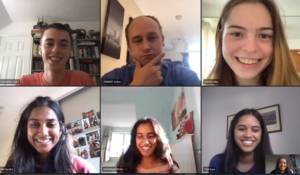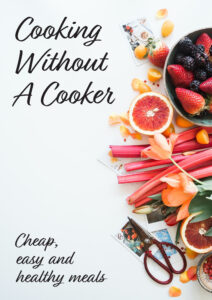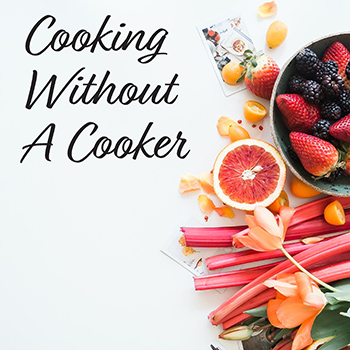As part of their SSC2b project this year, a group of medical students came up with a simple but effective idea to help the homeless. Jasmin Hart-Brooke takes up the story…
 This year, we had the opportunity as part of our second-year medical studies to undertake a project entirely of our own design. Our group came together through an interest in creating a recipe book, and we decided that we wanted the project to have a meaningful positive impact on our community.
This year, we had the opportunity as part of our second-year medical studies to undertake a project entirely of our own design. Our group came together through an interest in creating a recipe book, and we decided that we wanted the project to have a meaningful positive impact on our community.
“Cooking Without A Cooker” is an easy to follow recipe book for people in homelessness who often have limited access to food and cooking facilities. Starting with limited experience of the situation of people in homelessness was challenging, but with guidance from our tutor Dr John Budd – a GP from the Edinburgh Access Practice who works with homeless people – we expanded our knowledge through meetings with homeless charities, food banks and dieticians. These allowed us to ascertain the likely availability of cooking equipment, experience, and level of access to nutritious ingredients, which was key to correctly staging the level of information in the book.
Having established which equipment was commonly available in temporary accommodation, we decided to produce recipes utilising kettles, microwaves and toastie machines. Considering the common nutritional deficits, we designed healthy recipes using nutritious yet accessible and cheap ingredients. Acknowledging that traditional kitchen equipment (eg scales) wouldn’t be available, the recipes were altered to maximise the accessibility of each. Recipe instructions were worded concisely to make them straightforward to follow.

Working with food banks
We then worked with food banks so that this recipe book could have as big a reach as possible. We’ve had a lot of support getting our recipe book online and on social media as well as printing 100 copies which was very exciting news for us! This really helped get word out to as far as Aberdeen so far! Some food banks have given us feedback that recipes like the ones in our book are useful for people needing to budget on limited resources and that it could also potentially help improve the health and nutrition of some people in homelessness.
In the future, it would be great to be able to build on our recipe book and be able to create more recipes that are healthy, accessible, and cost efficient. Even with the meetings, we had to build our knowledge on the dietary and budgetary needs of people in temporary accommodation, our experience and knowledge is still somewhat limited so working with someone with more expertise on this subject to create more recipes could elevate our project into something with greater benefit.
Overall, we’ve had a lot of fun working on our recipe book! It was exciting having the freedom to completely direct our own project for semester two and we loved seeing all the other cool projects developed by other groups in our year.
Our project has been a great learning opportunity and the skills we’ve developed will certainly help us down the road. We are very grateful to have had this chance to learn about the challenges faced by the homeless and hope throughout our future careers we can continue to find ways to support people experiencing homelessness in our community.



